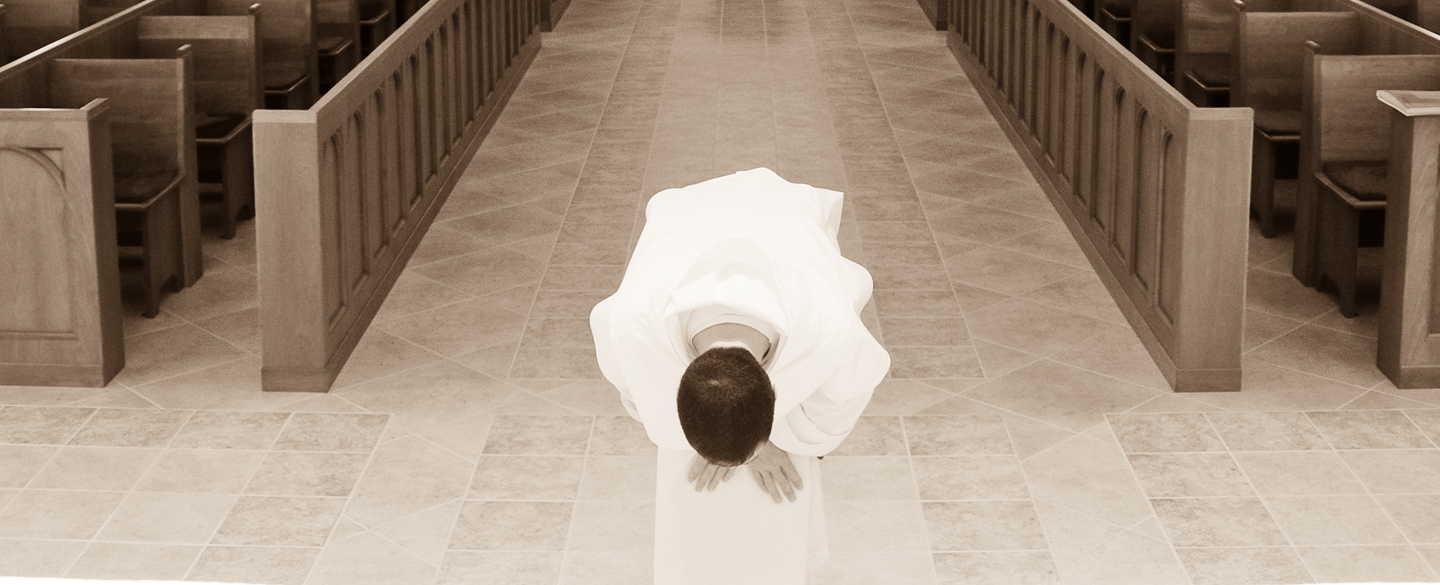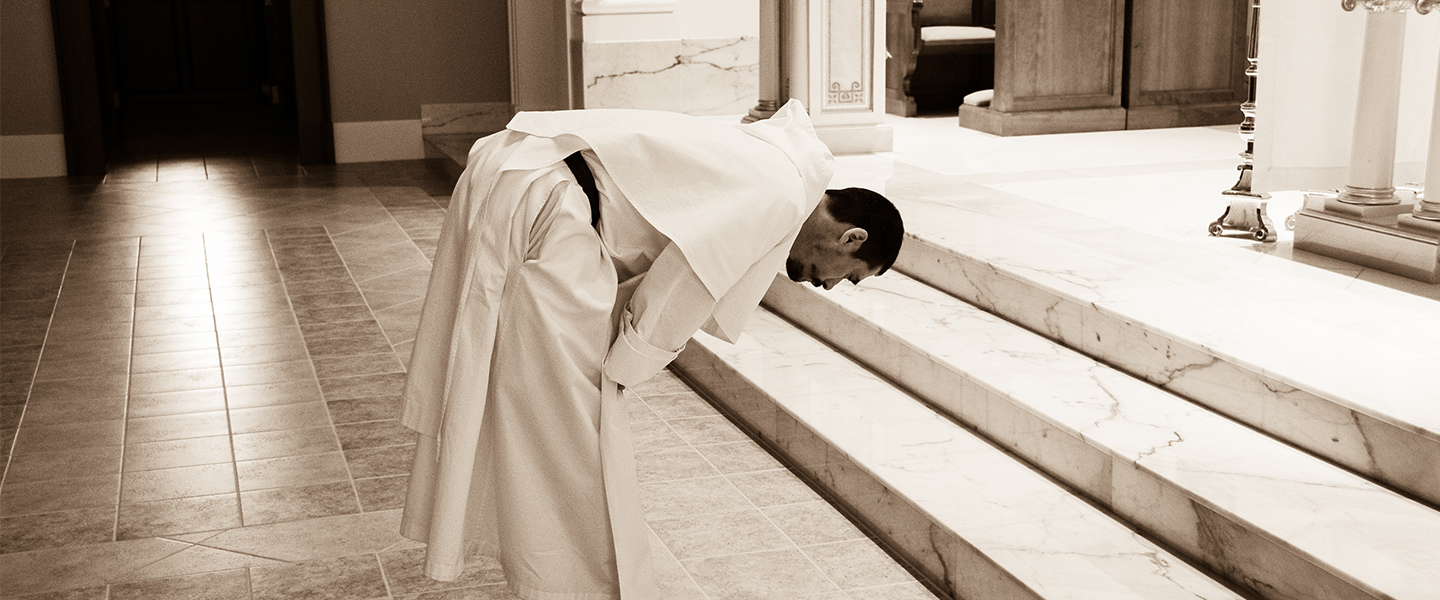
This way of prayer was the beginning of his devotion: bowing deeply.

First of all, bowing humbly before the altar as if Christ, whom the altar signifies, were really and personally present and not just symbolically. As it says, ‘The prayer of the person who humbles himself will pierce the clouds’ (Ecclus. 35:21). He used sometimes to say to the brethren the text from Judith, ‘The prayer of the humble and meek has always been pleasing to you’ (Judith 9:16). It was by humility that the Canaanite woman obtained what she wanted (Matt. 15:22-28), and so did the prodigal son (Luke 15:18-24). Also, ‘I am not worthy to have you come under my roof’ (Matt. 8:8). ‘Lord, humble my spirit deeply because, Lord, I am utterly humbled before you’ (Ecclus. 7:19; Psalms 118). So the holy father, standing with his body erect, would bow his head and his heart humbly before Christ his Head, considering his own servile condition and the outstanding nobility of Christ, and giving himself up entirely to venerating him.
He taught the brethren to do this whenever they passed before a crucifix showing the humiliation of Christ, so that Christ, who was humbled for our sake, might particularly see us humbled before his greatness. Similarly he told the brethren to humble themselves like this before the whole Trinity whenever ‘Glory be to the Father and to the Son and to the Holy Spirit’ was recited solemnly.
This way of prayer was the beginning of his devotion: bowing deeply.


 Back
Back